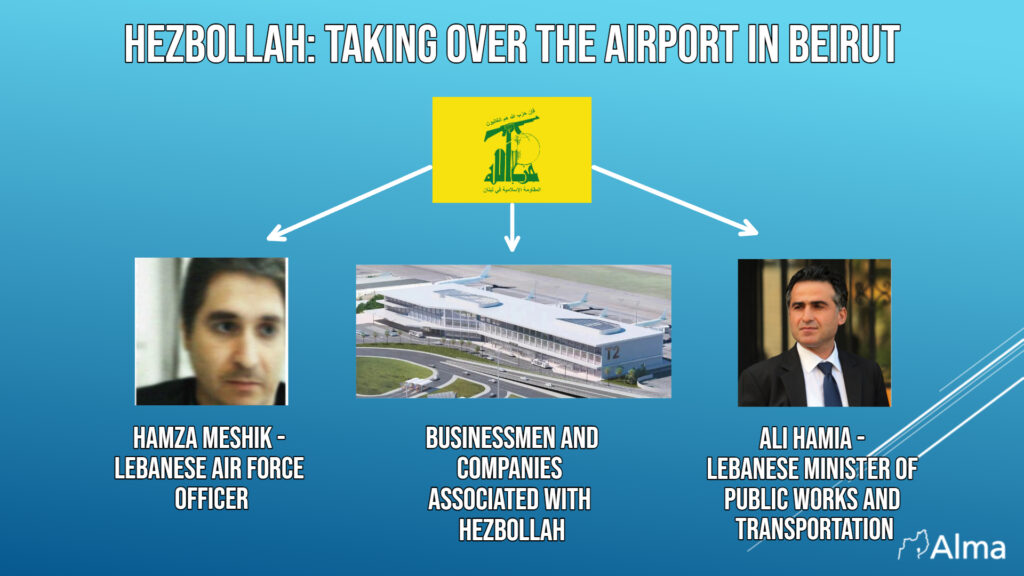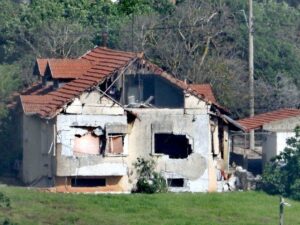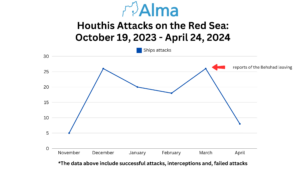Land and sea border crossings in Lebanon in general, and the primary air crossing – the Rafic Hariri International Airport in Beirut – in particular, have traditionally been designated as critical for Hezbollah. In light of this, Hezbollah has taken and will continue to take steps to gain a footing, influence, and control over them.
Thus, Hezbollah is free to conduct its smuggling business to and from Lebanon: fuel, drugs, other types of goods, and, of course, the movement of military equipment and weapons via the Iranian corridor into Lebanon. Supported by the IRGC – Quds Force – Unit 190. Furthermore, control of border crossings allows Hezbollah to monitor persons entering and exiting Lebanon via unit 900, Hezbollah’s security force.
The numerous airstrikes on Syrian territory against military equipment and weaponry delivered to Hezbollah via the Iranian corridor are driving Iran and Hezbollah to tighten their grip on the relevant alternatives. Beirut’s international airport has long provided an alternative to the land corridor via Syria for smuggling military equipment and weapons for Hezbollah. All of this is done with full civilian cover (for example, read our June 2022 special report on the subject).
Hezbollah’s major objective at the moment is to take control of the international airport in Beirut. This objective is being personally pursued by Hashem Safi al-Din, the head of the Hezbollah Executive Council, and Haj Fadi (Muhammad Jaafar Qusayr), the leader of Unit 4400 (Hezbollah’s smuggling unit).
Hezbollah is currently working intensively to seize the airport through prominent people in the government, security services, and, it appears, the private business sector. Hezbollah is using these figures as a proxy to achieve its goal.
For example, in the Lebanese government, Hezbollah Minister of Public Works and Transportation Ali Hamieh attempted to commence an initiative to construct a new terminal at the airport. Hezbollah was driving the move, and the terminal’s development would have been entirely under Hezbollah’s supervision.
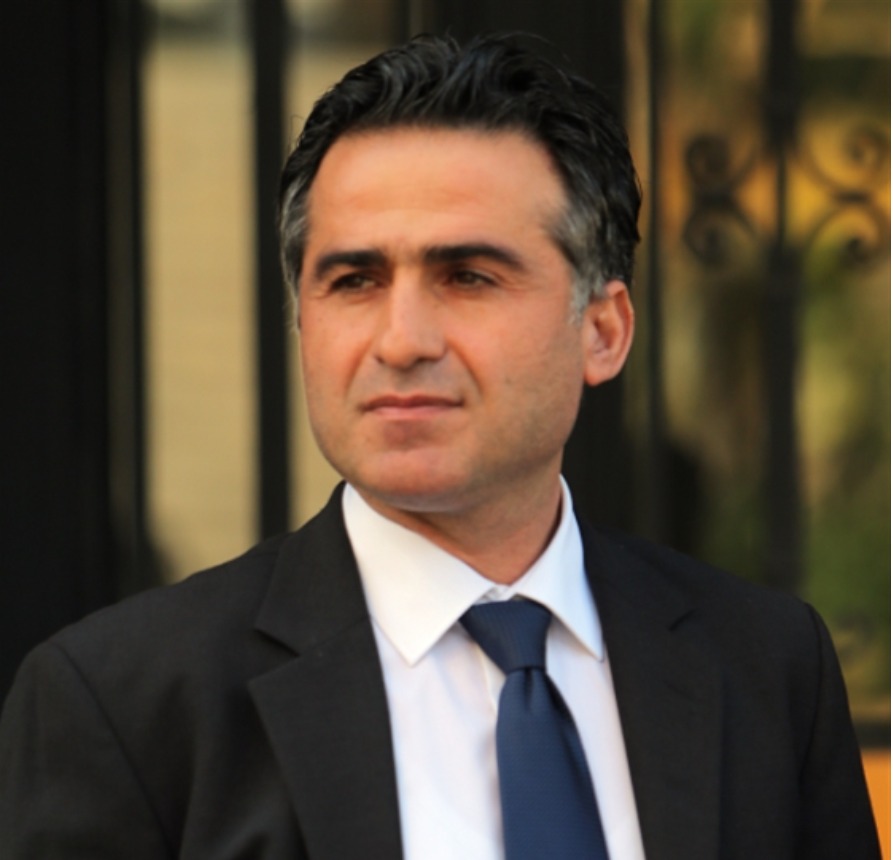
Ali Hamia declared on March 20, 2023, that his office is advocating the construction of a new passenger complex for the first time since 1998. Its construction will be funded by the Irish government. The initiative was unveiled at a celebratory occasion attended by Prime Minister Najib Mikati, an Irish government minister, and other Lebanese ministers.
Public criticism of the initiative began a week after it was published. It was stated that the minister was carrying out the project in flagrant contempt of the Public Information Transparency Law, and that no public tender for the works was published.
The minister’s decision was based on a Lebanese law passed in 2010 that permits the Lebanese government to lease parts of the international airport to outside corporations as long as it is unoccupied land or a non-utilized building, or renting space/offices under the responsibility of foreign airlines if necessary. Any additional rental or building project in the airport complex that is not included in the preceding two sections necessitates the release of a public tender. The law does not require the publication of a public tender in the event in question because it is part of the first and second clauses, except that this law only applies to empty land or unused buildings and does not apply to the construction of a new terminal, so the minister’s decision on the project is illegal under Lebanese law.
The minister’s attempt to interpret the law and create a new terminal on the basis of that interpretation was aimed to benefit Hezbollah’s interests. It is reasonable to believe that the new terminal’s construction was intended to engage private individuals and companies in the building and infrastructure sectors who are linked with and/or belong to Hezbollah. As a result, Hezbollah could de facto control the development of the new facility to best serve Hezbollah’s operational goals.

Ali Hamia canceled the project on March 30, 2023, after opposition to it grew and several disputes erupted over its legality and transparency. At a press conference alongside Ibrahim Al-Moussawi, the head of the parliamentary communications committee and a member of Hezbollah, and Saji’ Atiya, the head of the Public Works Committee, Hamia stated that he had “accelerated the project to build the new terminal at the request of the party he represents in the government, which is Hezbollah”…
At the same time, Hezbollah has been taking advantage of the Lebanese law passed in 2010. The aforementioned law authorizes the Lebanese government to lease parts of the international airport to outside corporations as long as it is unoccupied land or an insufficiently utilized building or renting space/offices under the responsibility of foreign airlines as needed.
According to our assessment, private businesses and civilian companies associated with Hezbollah act as proxies and rent properties in and near the airport for Hezbollah.
As a result, Hezbollah is attempting to create a foothold in and around the airport. In fact, Hezbollah is seeking to build a “parallel airport” for itself that will serve it without intervention from outside sources. As a result, Hezbollah will have complete control of the supply chain of equipment and weapons from Iran to Lebanon under full civilian cover.
From January 2023 till the present, 76 direct flights have been operated from Iran to Beirut Airport. Three Iranian carriers flew the flights: Mahan Air, Iran Air, and Meraj Carriers.
The planes and staff of Mahan Air, which carried out 21 direct flights to Beirut in January 2023, served as a primary civilian cover platform for smuggled military equipment and weaponry. The Iranian Quds Force has complete control over this company. In our report released in December 2022, we revealed its involvement in smuggling and the Quds Force’s complete control over it.
Iran Air, also known as a platform used by the IRGC, has carried out 35 direct flights to Beirut from January 2023 and Meraj Airlines has carried out 20 flights.
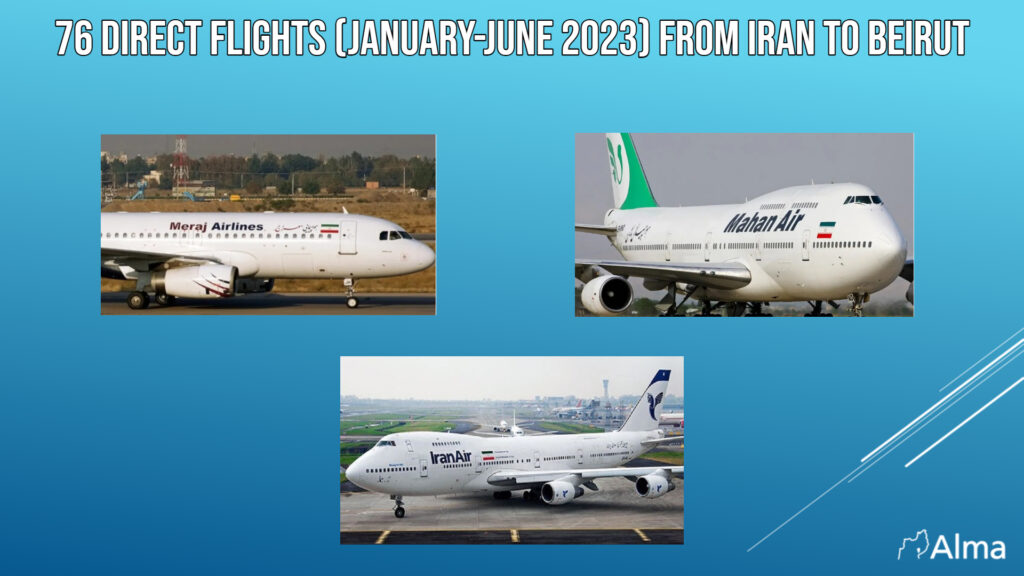
Hezbollah’s infiltration into the ranks of the Lebanese army and its military use of the army’s infrastructures, the activities of the army, its soldiers, and officers has recently been mentioned in a number of publications and are well known to us. (See also our June 2023 report)
Hezbollah exploits the resources and capabilities provided by the United States and Western nations as aid to the Lebanese army. Hezbollah utilizes the Lebanese army’s communications antennas and radars. Hezbollah recruited officers from the Lebanese Air Force and Navy in order to gain access to military radars provided, among other things, by the United States to the Lebanese army.
One of the significant officers recruited by Hezbollah’s security section (section 900) is Hamza Mashik, a technical officer in the Lebanese Air Force. Mashik allows Hezbollah access to the airport’s aerial radars. Sa’id Yusuf Biram works in Hezbollah’s security unit as Mashik’s handler.


It was evident fifteen years ago, in May 2008, how crucial the Beirut airport was to Hezbollah. On May 5, 2008, the Lebanese government decided to fire Wafiq Shakir, the airport security officer on behalf of the General Directorate of General Security, amid allegations that he had installed cameras along the VIP runway at the airport on Hezbollah’s orders. This decision by the Lebanese government, along with another that harmed Hezbollah’s independent communications infrastructure, nearly resulted in another civil war when Hezbollah launched a military campaign to seize power centers in Lebanon, including the encirclement and occupation of the airport. Shakir has been reinstated.
Hezbollah recruits and manages important airport personnel for its needs through its security unit. The General Security Directorate, in charge of Lebanon’s border crossings, is a key target for Hezbollah’s security force. Even today, as evident from the May 2008 events, the airport’s security officer works for Hezbollah.
It was recently revealed that the German Federal Police provided over 800 cameras at Beirut’s airport to monitor individuals arriving. Given the preceding, Hezbollah is likely to have full access to them, and they are yet another instrument in its arsenal for controlling the airport.
As of today, Lebanon’s international airport is not solely under the administration of the Lebanese government. Hezbollah is a full partner in airport control. Hezbollah is aiming to build a “parallel airport” that will serve it without interference from outside sources.

